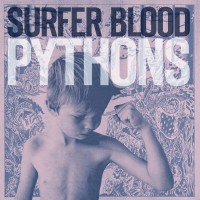by Devin William Daniels As you’ve probably noticed over the past few weeks, IRC has posted playlists of the Best…
Tag: Daft Punk
Fresh Tracks from Bright Eyes, Swim Party, Cloud Nothings, Duchess Leo, The Brute Chorus, Emanuel & The Fear, Daft Punk
Some of you may have noticed the lack of Best New Releases posts in December. That was directly the result…
Best New Releases – Perfume Genius, Sufjan Stevens, Acid House Kings, Air Waves, Anika, Daft Punk, Deadmau5, Freebase, Eluvium
This week marks the re-release of the debut LP, Learning, from Seattle solo artist, Mike Hadreas, who releases music as…
Best of Lollapalooza 2007 Videos, Vol. I – Pearl Jam and Daft Punk
While waiting for the official Lollapalooza 2008 line-up, here’s a look back at Lollapalooza 2007’s best performances. Enjoy. The grunge/alt…



